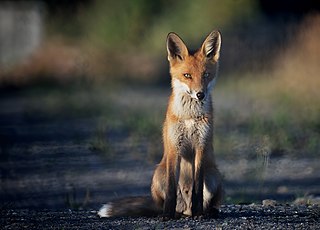See also
Surname list
This page lists people with the surname Hewett. If an internal link intending to refer to a specific person led you to this page, you may wish to change that link by adding the person's given name(s) to the link.
Hewett is a surname. Notable people with the surname include:
Douglas, occasionally spelt Douglass, is a Scottish surname. It is thought to derive from the Scottish Gaelic dubh glas, meaning "black stream". There are numerous places in Scotland from which the surname is derived. The surname has developed into the given name Douglas. Douglas is a habitational name, which could be derived from any of the many places so-named. While there are numerous places with this name in Scotland, it is thought, in most cases, to refer to Douglas, South Lanarkshire, the location of Douglas Castle, the chief stronghold of the Lords of Douglas. The Scottish Gaelic form of the given name is Dùbhghlas ; the Irish-language forms are Dúghlas and Dubhghlas, which are pronounced. According to George Fraser Black, in southern Argyllshire the surname is an Anglicised form of the surnames MacLucas, MacLugash.
Nicholson is a Germanic and Scottish surname. It is a patronymic form of the given name Nichol, which was a common medieval form of Nicholas.
Murray is both a Scottish and an Irish surname with two distinct respective etymologies. The Scottish version is a common variation of the word Moray, an anglicisation of the Medieval Gaelic word Muireb ; the b here was pronounced as v, hence the Latinization to Moravia. These names denote the district on the south shore of the Moray Firth, in Scotland. Murray is a direct transliteration of how Scottish people pronounce the word Moray. The Murray spelling is not used for the geographical area, which is Moray, but it became the commonest form of the surname, especially among Scottish emigrants, to the extent that the surname Murray is now much more common than the original surname Moray. See also Clan Murray.
Campion is a surname. Notable people with the surname include:
Willis is a surname of English, Norman French, and Scottish origin. The oldest extant family of the name, the Willes family of Warwickshire, formerly of Newbold Comyn and Fenny Compton, has used the spellings 'Willis,' 'Willys,' and 'Wyllys' and appear in records from 1330. In this case, the name derives from the name de Welles which comes from the Norman name de Vallibus, which in turn was derived from the Vaux family tree. The Vaux family, established in England by Harold de Vaux, a close relative of William the Conqueror, appears in French records from 794. They had held power in their own right and through royal intermarriages.

Darby is an English locational surname and has since become a given name. Its prefix derives from the Old Norse djúr ("deer"), and the suffix -býr ("farm"/"settlement"). The oldest recorded surname dates to the period of 1160–1182 in Lincolnshire. Darby was a common pre-1800 alternative spelling of Derby, a city in England. Notable people with the name or its variants include:
Dyer is an English surname with early medieval origins, deriving from the trade of cloth dying. Dyer is also found in Ireland as an Anglicisation of the Irish Gaelic surnames in Ireland "O Duibhir" and "Mac Duibhir". These are both derived from the words dubh, which means black, and odhar or uidhir, which mean uncolored.
Bayly is a surname. Notable people with the surname include:
Hood is an English and Scottish surname. Notable people with the surname include:
Lang is a surname of Germanic origin, closely related to Lange, Laing and Long, all of which mean "tall".
Bowen is a Celtic surname representing two separate Celtic ethnicities, the Welsh ab Owain meaning "son of Owen" and the Irish Ó Buadhacháin meaning "descendant of Bohan". The Bowen lineage can be traced back to Llwyngwair in the 11th century, near Nevern in Pembrokeshire. The Bowen surname was adopted in 1424. There are seven Bowen crests and the Bowen/Owen family group share a tartan. The Bowen/Bowens surnames are more commonly found in southern Wales, while the Owen/Owens surnames are more commonly found in northern Wales.
Napier is a surname with an English, Scottish, French or Polish origin.
Burnett is a Scottish surname. It is derived from a nickname from the Old French burnete, brunette, which is a diminutive of brun meaning "brown", "dark brown". Another proposed origin of the name is from burnete, a high quality wool cloth originally dyed to a dark brown colour.

Fox is a surname originating in England and Ireland. The derivation is from the Middle English "fox", itself coming from the Old English pre 7th century "fox". The surname first appears on record in the latter part of the 13th century, with the first recorded spelling in 1273 to be that of John Fox in the "Hundred Rolls of Yorkshire", England. In Ireland, Fox is mainly a translation of the Old Gaelic "Mac a'tSionnaigh".
Adair is a surname of Scotland. A common misconception is that the surname is related to Edgar, Eadgar, O'daire or MacDaire. Robert Fitzgerald De Athdare was the first Adair. He was from what is now Limerick, Ireland.
Greene is a surname. Notable people with the surname include:
Woodcock is a relatively uncommon English surname that seems to have originated from varied roots in the Early Middle Ages.
Collier is an English surname, derived from the word "coal".
The surname Barton has multiple possible origins. It may denote origin from one of the many places called Barton in England; however, another proposal would derive the name from Dunbarton in Scotland. The counties of Cheshire and Lancashire have the highest number of Barton families in the United Kingdom.
Holloway is an English surname.